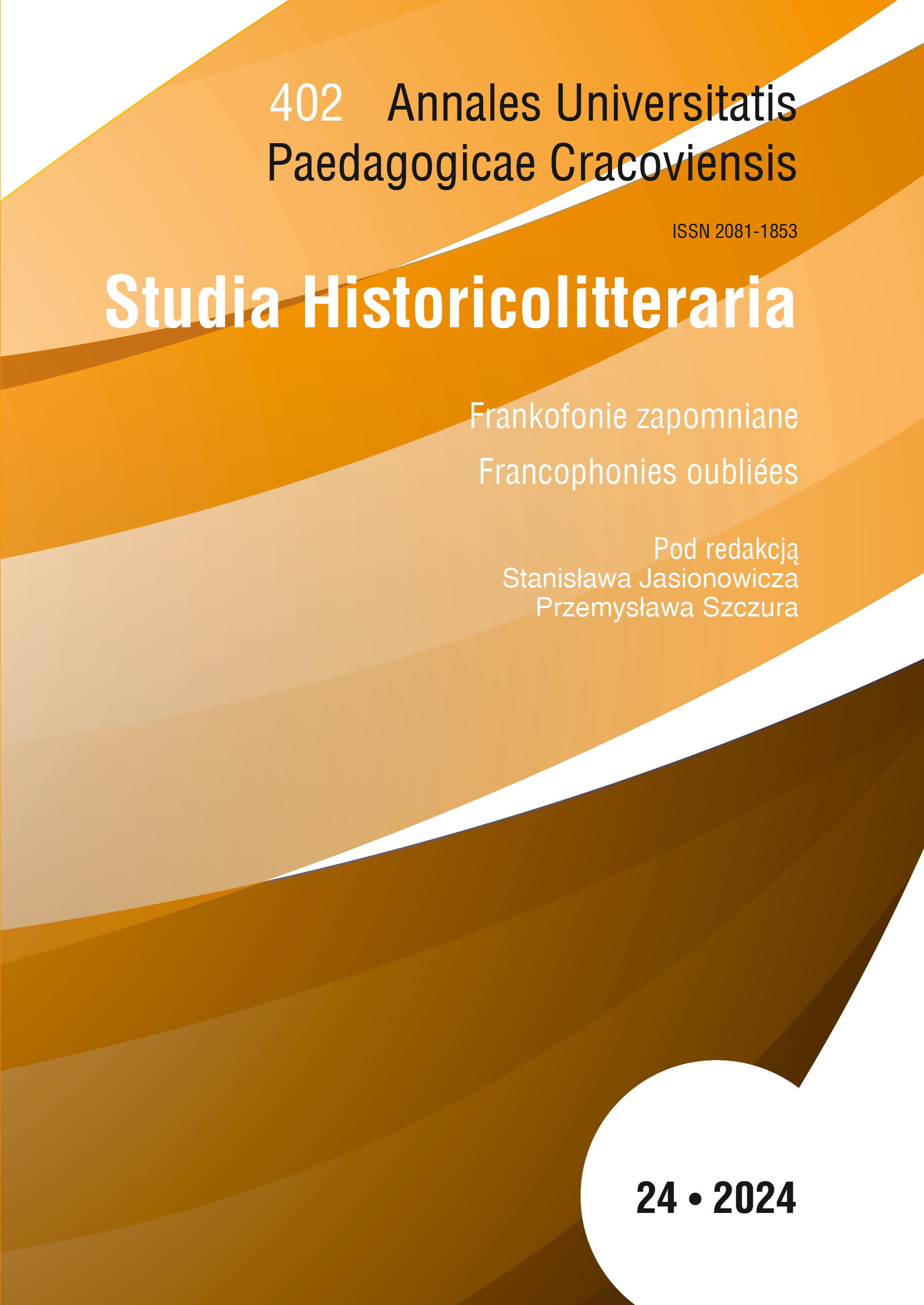L’image de la ville dans la littérature belge fin-de-siècle: identité et spécificités d’une littérature francophone
Hauptsächlicher Artikelinhalt
Abstract
The literature of the late 19th and early 20th centuries in Europe was characterised by a proliferation of symbolism in both poetry and prose. At the same time, a new country, born of political decisions that took no account of its linguistic communities, was asserting its independence. In this country, Belgium, the writers of the time had to make a difficult choice: either write in their own mother tongue and give up the chance of being understood by most of Europe, or adopt French in order to enter the literary world, which would allow them fame and integration. This is the same choice that writers in the countries colonised by France had to make, and the result was the creation of a whole body of French-language literature that is now recognised. However, Belgian writers such as Maeterlinck, Verhaeren and Eekhoud, most of whom were Dutch-speaking
from a country that had nothing to do with colonial and post-colonial phenomena, chose to write in French. Their choice reflects certain ways in which the French language is spread throughout the world, which are not linked to any pattern of political or ideological domination. As a result, these authors have often been equated with French writers. Was this a deliberate choice, the price of fame, or an uncontrollable destiny? Can we speak of a specificity of Belgian literature?
This study highlights the specificity of Belgian literary works by analysing the image of the city that pervades these texts.
Downloads
Artikel-Details

Dieses Werk steht unter der Lizenz Creative Commons Namensnennung - Nicht-kommerziell - Keine Bearbeitungen 4.0 International.
URHEBERRECHTE
Der Herausgeber der „AnnalesUniversitatisPaedagogicaeCracoviensis. StudiaHistoricolitteraria” ist zur Nutzung und Verbreitung aller in der Zeitschriftveröffentlichten Materialien auf Grundlage eines nicht ausschließlichen, zeitlich unbeschränkten Lizenzvertrags befugt, der im Voraus unbefristet mit jedem/r Autor/in des jeweiligen Werks für die im betreffenden Vertrag vereinbarten Nutzungsbereiche abgeschlossen wird.
POLITIK DES OFFENEN ZUGRIFFS
Die „AnnalesUniversitatisPaedagogicaeCracoviensis. StudiaHistoricolitteraria” sind eine Fachzeitschrift mit freiem Zugriff, dessen voller Inhalt kostenlos für Nutzer und Einrichtungen auf Grundlage einer nicht ausschließlichenCreativeCommons-Lizenz (CC BY-NC-ND 4.0) verfügbar ist. Die Nutzer/innen können die Artikel in dieser Zeitschriftohne vorherige Zustimmung des Herausgebers oder des/r Autors/in lesen, herunterladen, Kopien anfertigen, verbreiten, drucken oder zu Volltexten verlinken, insofern die Quelle des Zugriffs und der/die Autor/inder jeweiligen Publikation angegeben wird. Dies ist mit der BOAI-Definition des offenen Zugriffs konform (http://www.soros.org/openaccess).
Literaturhinweise
Benevolo L., La ville dans l’histoire européenne, Paris, Seuil, 1993.
Bladel M., L’Œuvre de Georges Eekhoud, Bruxelles 1922.
Cacciari M., Metropolis, Roma 1973.
Doutrepont G., Histoire illustrée de la littérature française en Belgique, Bruxelles 1939.
Dumont-Wilden L., Villes d’art de la Belgique, Paris 1942
Dumont-Wilden L., Villes meurtries de Belgique, Paris-Bruxelles 191
Eekhoud G., Capitale et métropole, manuscrit autographe, daté de 1905, conservé aux Archives et Musée de la Littérature, Bruxelles, cote ML 159.
Farini C., Intertestualità crepuscolare: G. Gozzano e G. Rodenbach, «Lingua e stile», 1992, n° 3, p. 437–445.
Farini C., Georges Rodenbach e Marino Moretti: tra simbolismo e crepuscolarismo, «Rivista di studi italiani» gennaio-giugno 2002, n° 1/2, pp. 157–168.
Fierens-Gevaert H., Psychologie d’une ville. Essai sur Bruges, Paris 1901.
Frickx R., Gullentops D., Le Paysage urbain dans les lettres françaises de Belgique, Bruxelles 1994.
Gorceix P., Le Symbolisme en Belgique, Heidelberg 1982.
Lemonnier C., La Vie belge, Paris 1905.
Lemonnier C., Paysage de Belgique, Bruxelles 1945.
Les Concepts nationaux de la littérature. L’Exemple de la Belgique francophone; une documentation en deux tomes, t. 2, éd. S. Gross, J. Thomas, Aachen 1989.
Lynch K., Image of the City, Cambridge 1964 (trad. fr. L’Image de la cité, Paris 1971).
Maes P., Georges Rodenbach. 1855–1898, Gembloux 1952.
Nautet F., Des difficultés d’une littérature nationale, « Revue de Belgique » 1882, vol. 41, p. 223–240.
Otten M., Situation du Symbolisme en Belgique, « Lettres romanes » 1986, vol. XL, p. 203–209.
Paque J., Le Symbolisme belge, Bruxelles 1989.
Quaghebeur M., Histoire, Forme et Sens en Littérature. La Belgique francophone. Tome 1. L’engendrement (1815–1914), Bruxelles 2015.
Rodendach G., Bruges-la-morte, Paris 1892.
Rodenbach G., Évocations, Paris 1924.
Rodenbach G., Lettre, février ou mars 1888, Bruxelles, Archives et Musée de la Littérature, cote ML 93/1. Lettre sans destinataire.
Scheffler K., Paris. Notizen, Leipzig 1908.
Simmel G., Philosophie de la modernité, Paris 1989.
Vautel C., Les bruits de Paris, « La Presse » 29 décembre 1898, p. 2.
Les Villes du Symbolisme. Actes du colloque de Bruxelles 21–23 octobre 2003, éd. M. Quaghebeur, Bruxelles 2007.
Zweig S., Émile Verhaeren. Sa vie, son œuvre, Paris 1946.
